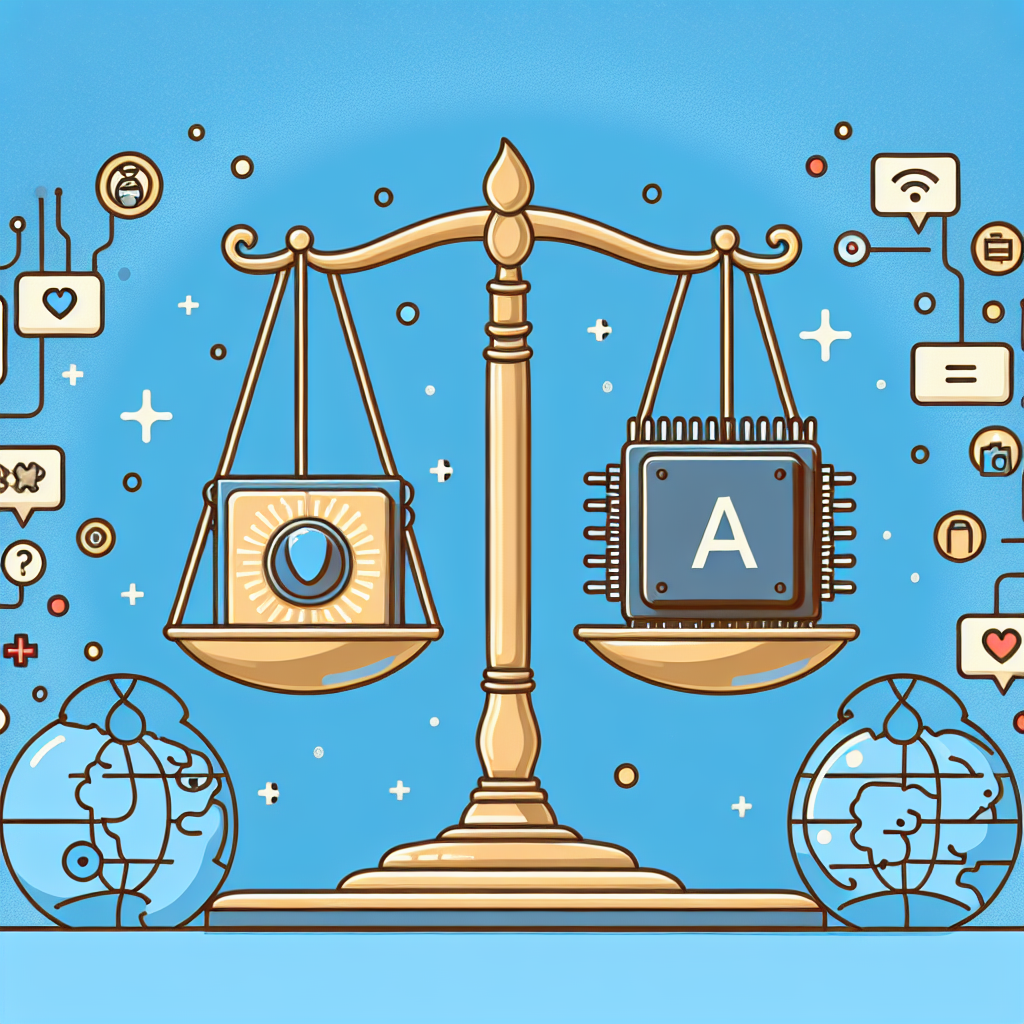Artificial Intelligence (AI) has rapidly transformed the way businesses operate, and one area where its impact is particularly notable is in social media influencer marketing. As brands increasingly turn to social media influencers to promote their products or services, AI is being used to optimize and streamline the influencer marketing process. However, the use of AI in influencer marketing raises ethical questions and concerns that need to be carefully considered.
One of the main ethical issues surrounding the use of AI in influencer marketing is the potential for manipulation and deception. AI algorithms can analyze vast amounts of data to identify the most effective influencers for a given campaign, based on factors such as engagement rates, audience demographics, and brand alignment. While this can lead to more targeted and successful marketing campaigns, it also raises questions about transparency and authenticity.
For example, AI algorithms can be used to create “deepfake” content that makes it appear as though an influencer is endorsing a product when they are not. This can mislead consumers and erode trust in both the influencer and the brand. Similarly, AI can be used to manipulate influencer engagement metrics, such as likes and comments, to make it seem as though an influencer’s content is more popular than it actually is.
Another ethical concern is the potential for bias in AI algorithms used to select influencers. If algorithms are trained on biased data, they may inadvertently perpetuate stereotypes or exclude certain groups from opportunities in influencer marketing. This can have negative consequences for diversity and inclusion in the industry.
Furthermore, the use of AI in influencer marketing raises privacy concerns. AI algorithms often rely on personal data collected from social media platforms to target influencers and track campaign performance. If this data is not properly protected and handled, it can pose a risk to individuals’ privacy and security.
To address these ethical concerns, businesses and influencers must prioritize transparency and accountability in their use of AI in influencer marketing. This includes clearly disclosing when AI algorithms are being used to select influencers or analyze campaign performance, as well as being honest about the limitations and potential biases of these algorithms.
In addition, businesses should prioritize diversity and inclusion in their influencer marketing efforts, ensuring that AI algorithms are designed to promote a wide range of voices and perspectives. This can help to mitigate bias and promote a more equitable industry.
Finally, businesses and influencers should prioritize data privacy and security in their use of AI in influencer marketing. This includes obtaining informed consent from individuals before collecting and using their personal data, as well as implementing robust security measures to protect this data from unauthorized access or misuse.
Overall, the use of AI in influencer marketing offers many benefits in terms of efficiency and effectiveness, but it also raises important ethical considerations that must be carefully navigated. By prioritizing transparency, diversity, and privacy, businesses and influencers can ensure that their use of AI in influencer marketing is ethical and responsible.
FAQs
Q: How does AI impact the influencer selection process?
A: AI algorithms can analyze data from social media platforms to identify influencers who are likely to be a good fit for a given campaign, based on factors such as audience demographics, engagement rates, and brand alignment. This can streamline the influencer selection process and lead to more targeted and successful marketing campaigns.
Q: What are some examples of unethical uses of AI in influencer marketing?
A: Examples of unethical uses of AI in influencer marketing include creating deepfake content to deceive consumers, manipulating influencer engagement metrics, and perpetuating bias in influencer selection algorithms. These practices can erode trust in both influencers and brands and harm the integrity of the industry.
Q: How can businesses and influencers ensure ethical use of AI in influencer marketing?
A: Businesses and influencers can ensure ethical use of AI in influencer marketing by prioritizing transparency, diversity, and privacy. This includes clearly disclosing when AI algorithms are being used, promoting a wide range of voices and perspectives, and protecting individuals’ personal data from unauthorized access or misuse.
Q: What are the benefits of using AI in influencer marketing?
A: Some benefits of using AI in influencer marketing include increased efficiency in the influencer selection process, more targeted and successful marketing campaigns, and improved tracking of campaign performance. AI can help businesses and influencers to optimize their marketing efforts and reach their target audience more effectively.

